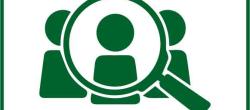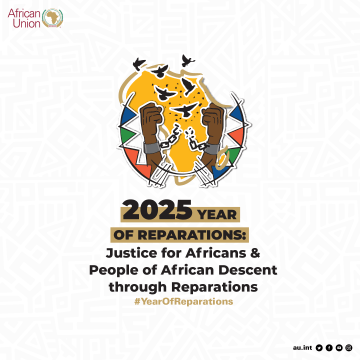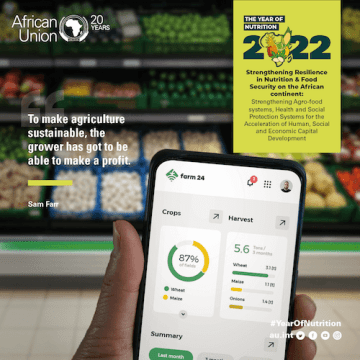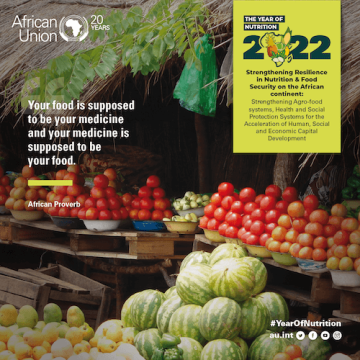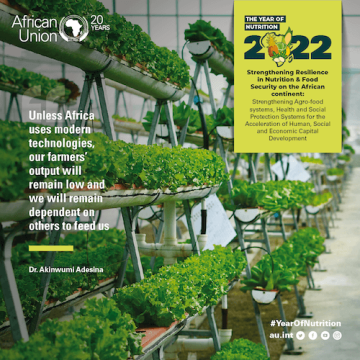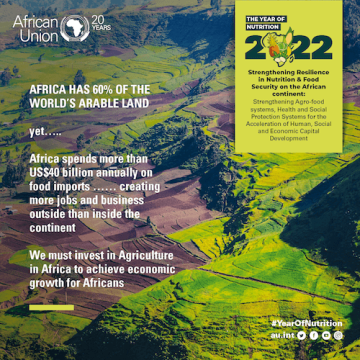TERMS OF REFERENCE
INDIVIDUAL CONSULTANCY SERVICES FOR
NATIONAL CONSULTANTS FOR THE
AFRICA GOVERNANCE REPORT 2025: NATURAL RESOURCES GOVERNANCE IN AFRICA AT THE REPUBLIC OF SEYCHELLS
PROCUREMENT NUMBER: APRM/AU/NAT/SEY/01/11/2024
AFRICAN PEER REVIEW MECHANISM CONTINENTAL OFFICE, SOUTH AFRICA
MARINE RESOURCES (BLUE ECONOMY) GOVERNANCE
1. BACKGROUND
The African Peer Review Mechanism (APRM) in collaboration with the African Governance Architecture (AGA) Platform are developing the 4th Edition of the Africa Governance Report (‘the AGR25’), on the theme ‘Natural Resources Governance in Africa’. The mandate to develop the AGR 2025 derives from an AU Assembly decision- Assembly/AU/Dec.9(XXXVII), made at the 37th Ordinary Session of the African Union Assembly of Heads of State and Government held from 17-18 February 2024 in Addis Ababa, Ethiopia.
The Africa Governance Report (AGR) is a biennial publication of the AU on the state of governance in Africa. The AGR is a flagship initiative of the African Governance Architecture (AGA) and the African Peace and Security Architecture (APSA) Platform. The AGR is produced by the APRM Continental Secretariat in collaboration with members of the African Governance Platform (AGP) of the AGA, pursuant to the AU Assembly Decision Assembly/AU/Dec.720 (XXXII).
The African Union (AU) recognises that deficits in natural resource governance compromise the development of industry, trade, and overall economic performance. Africa’s natural resources endowment is a bankable opportunity for economic and social development in African countries. However, the challenges in the governance of natural resources in African states translate into grossly underdeveloped global and continental value chains and inequitable distribution of gains from natural resources to African countries.
To this end the AGR25 seeks to: i) assess the state of natural resource governance in Africa, the institutional, legislative, and policy landscape of mineral resources, marine resources and land resources, ii) identify constraints and make recommendations on governance practices that create an enabling environment for and enhance value realisation and revenue management from natural resources, and iii) highlight best practices in the natural resource governance on the continent relevant to increasing dividends from natural resources nationally and globally.
The report shall also examine the critical nexus between development, peace and security, and natural resource governance. The significance of this nexus is also confirmed in the findings of the AGR 2023 on Unconstitutional Changes of Government, sub-themes of Economic Governance and Public Sector Accountability, and Diversity Management and Human Rights. That improved governance and management of natural resources enhance human rights, development, and ultimately peace and security.
2. DESCRIPTION OF THE PROJECT
The African Peer Review Mechanism (APRM) Continental Secretariat, an autonomous entity of the African Union, shall undertake the development of its fourth African Governance Report (AGR 2025) to examine the political economy and trends in the governance of natural resources. The report shall assess the laws, policies, and practices in the concerned sectors and how states exercise their authority in the administration of their implementation. The assessment shall employ a three-dimensional framework comprising enabling environment, value realization, and revenue management.is establishing a continental programme on natural resource governance in Africa.
To this end, the Secretariat is conducting reviews and studies to inform the approach and strategy of the programme. The purpose of the assessment and/or review is to examine the sufficiency and coherence of natural resource governance legislation and institutional arrangements on the continent. It is envisaged that the outcome of the review will inform the development of a normative framework for natural resource governance in African countries.
These Terms of Reference seek to recruit the services of a National expert in Marine resources (Blue Economy) governance herein referred to as ‘the consultant’), to undertake a desk study analysing the concepts, parameters, instruments and trends in socio-economic dividends from the exploration and exploitation of Marine resources (Blue Economy) sources to African countries.
2.1 MARINE RESOURCES (BLUE ECONOMY)
Marine Resources, as relates to the Ocean and Blue Economies, are important to consider for the AGR-25. The Blue Economy refers to the vast aquatic and ocean-based economic activities such as fisheries, aquaculture, tourism, transport, ports, coastal mining, and energy. These activities are significant to the economic development of Africa’s coastal countries, and the sustainable use of ocean resources enhances economic growth, job creation, and ecosystem preservation. According to the AU and World Bank, the blue economy generated approximately $300 billion for the continent in 2022. However, unsustainable conservation of marine habitats, inadequate infrastructure development, and pollution threaten the optimisation of blue economy activities by African countries. The governance of blue economy activities greatly impacts coastal and marine landscapes and economies.
The continent has 38 coastal states and a number of island states such as Cape Verde, Sao Tomé and Principe, Mauritius, Seychelles, Madagascar and the Comoros. Among these island states are Small Island States (SIDS) African Small Island States boast vast maritime territories that are rich in biodiversity and natural resources, making them key players in this emerging economic paradigm. These include, among others, the Republic of Seychelles, the Union of the Comoros and the Republic of Mauritius for example. The Republic of Seychelles emphasises the importance of maritime resources in its Blue Economy Strategic Policy and Roadmap (2018-2030). The Union of the Comoros underscored the importance of the Blue Economy as a catalyst for economic diversification and poverty alleviation in its National Development Plan. And the Republic of Mauritius boasts a diverse marine ecosystem and a robust maritime infrastructure, facilitating trade, shipping, and offshore activities. These and many other coastal countries on the continent are reflected in the Africa Blue Economy Strategy (2019) as being optimal environments for the promotion, implementation and inclusion of the blue economy and climate change in environmental laws and policies.
3. THE ASSIGNMENT
The APRM is soliciting the services of a National Consultant to assess the Marine resources (Blue Economy) governance landscape and current normative instruments in the area of Marine resources (Blue Economy). Analysis of the area shall ensure that the political, economic, social, and environmental governance aspects are examined.
Specifically, these include:
- Mechanisms for inclusive governance and participation of non-state actors in Marine resources (Blue Economy) governance processes,
- Assessment of the integrity of legislation and institutions that govern the economic and commercial use of Marine resources (Blue Economy),
- Protections for human rights as relates to the nexus between peace, security and Marine resources (Blue Economy).
- Environmental guidelines regarding access to and use of land resources and related ecosystems in which they are found.
4. OBJECTIVE
The study seeks to examine the legislative and institutional landscape of natural resource governance in Africa. It assesses the state of the legislation and institutions that govern natural resources in APRM member states and proposes an integrated framework for enhancing regional economic integration in the African context.
The objectives of the study are to:
- Undertake comprehensive legislative review of the normative frameworks for the governance of Marine resources (Blue Economy) at i) the African Union continental level, ii) Regional Economic Communities (RECs) level, and iii) the National level.
- Undertake stakeholder mapping of key governance institutions at national, regional, and continental level.
- Interrogate the challenges of institutional and corporate compliance in Marine resources (Blue Economy) governance in Africa.
- Develop a conceptual framework for draft guidelines for Marine resources (Blue Economy).
5. SCOPE OF WORK: NATIONAL CONSULTANTS
Specific tasks contained in this scope of work are intended to serve as minimum requirements for the Consultant to undertake the assignment. Additional tasks that add to a greater understanding of key issues may be addressed, as appropriate. To implement the objectives of the proposed assignment, the Consultant, under the supervision of the Country Institutional Assessment Coordinator at the APRM Continental Secretariat, shall undertake the following:
1.0 Submit an inception Report
In order to achieve the stated objectives above, the Consultant is expected to carry out the tasks as described below. The Consultant will carry out a diagnosis of the country in the critical areas outlined in the Terms of Reference (TORs), including an assessment of the technical, financial, operational and management situation and make recommendations on the potential changes to the legal and institutional framework.
1.1 Familiarise himself/herself with APRM documents and specific information developed for the Country institutional assessment of the Republic of Seychelles on the themes identified for the mission. The Consultant is expected to familiarize himself/herself with the base document of the APRM and the APRM questionnaire.
The Consultant will also be provided with the existing documentation and specific information developed for the mission.
ii) 1.1.2 Identification of Issues should be informed by the following:
After consideration of all the information (collected and compiled documents), the identification of the issues should be informed by the following:
i) Issues related to the country’s capacity to address the main challenges.
ii) Issues that have been understated or inadequately addressed in the past
iii) Issues that have been identified in the past but continue to have serious implementation challenges.
iv) Areas of discrepancies or divergences (from cross-checking with the background paper).
v) Measures to ensure that the Country institutional Assessment process is locally led and nationally owned.
1.3. Questionnaire administration
The national Consultant shall be responsible for:
i) The administration of the Key Informant interviews
ii) The administration (sending out and collecting the self-administered questionnaire).
iii) The provision, in collaboration with the national authorities, of a list relevant key stakeholders for engagement during the mission. He shall collect all the relevant information from the public sector, private sector, civil society, NGOs, rural communities and other stakeholders.
1.4 The report should follow the agreed report structure outlined in the TORs.
1.5 The Beneficiaries of the final Report are the following:
i. The African Union Member states
ii. The Republic of Seychelles
iii. The APRM Panel of Eminent Persons.
iv. The APRM Continental Secretariat.
1.6 Prioritization of Issues
Efforts should be made to prioritize the issues according to their complexity, urgency and relevance vis-a-vis the objectives contained in the National Development Plan.
1.7 Participation and Rapporteur
The Consultant will be expected to:
i) participate in the Key informant interviews and capture the unfolding issues which will inform the final Country institutional Assessment Review Report. He shall:
ii) Capture and explore the specific issues that have been identified on the themes and integrate them into the final Country institutional assessment Report.
iii) Participate in meetings, mainly held in the capital city or bilateral meetings focusing on the theme and to keep a record of these sessions.
iv) Investigate further specific issues on the theme either before, during or after discussions.
v) Participate in the validation of the report and capture potential suggestions, recommendations or insights for incorporation into the draft report.
vi) Participate in every briefing session organized by the national structures to ensure that the process is on course.
1.8 Incorporating the unfolding lessons and Outcome of the Country national assessment discussions into the Report
Upon conclusion of the mission, the consultant will incorporate the relevant details of the unfolding lessons and outcome of the Country institutional assessment discussions into the report. This section of the report should be circulated to the team members for comments, revision and finalisation.
1.9. Finalization of the Country institutional Assessment Report
1.9.1. The National Consultant is expected to submit a background Paper of about 20 pages, a Key Issues Paper and a Questionnaire on the themes of the mission. In addition, the National Consultant will support the Government, Ministries, Departments and Agencies (MDAs) in the finalization of the National Programme of Action (NPoA) for submission to the APRM Continental Secretariat.
1.9.2. The National Consultant is a member of the review Team and will work in collaboration with the Thematic Consultant, the Country assessment Team, and all the other relevant stakeholders under the leadership of the Panel Member and the Country Institutional Assessment Coordinator.
1.9.3. The National Consultant shall contribute to the finalization of the draft report to the Country Institutional Assessment Coordinator no later than two weeks after the conclusion of the mission.
2.0. DELIVERABLES FOR NATIONAL CONSULTANTS
2.1 A background paper of about 20 pages on Land resources, no later than two weeks from the signing of the contract. The report shall include the following:
• An executive summary of 5 pages with conclusions on the nature of issues discovered and the status of the theme under investigation. The executive summary should conclude with a summary of the main findings, strengths and challenges, commendable practices identified as well as then main actionable recommendations; and
• A full disclosure of sources and citations and a full bibliography.
2.2 A key issues paper on the same theme no later than two weeks from the date of the signing of the contract.
2.3 A questionnaire by building on the APRM base questionnaire and the key focus areas as suggested by the mission documents on the same theme and submit it on the 14th day from the date of the signature of the contract.
2.4 Support to the finalization of the National Programme of Action (NPoA) in collaboration with the Thematic consultant, the APRM Continental Secretariat and the local authorities.
3.0 TIME FRAME
The consultancy will be conducted within 30 days, including the Country Institutional Assessment Field Mission. However, the consultant shall remain available for any contributions until an acceptable Report is submitted.
4.0 QUALIFICATIONS AND EXPERIENCE
4.1 Education
The Consultant should have one of the following education profiles:
• A PhD in Marine resources (Blue Economy) with a minimum of five (05) years’ relevant experience.
• A master’s degree in marine resources (Blue Economy) governance, or related fields with a minimum of seven (7) years’ relevant experience.
4.2 Experience, Skills and Competencies
i) Have experience in developing, implementing and evaluating national policies or other relevant programmes that involve coordination with international agencies or implementing partners.
i) Have broad knowledge of the Republic of Seychelles.
ii) Have in-depth knowledge of Marine resources (Blue Economy) and to be able to assess the policy’s impact on economic and social development, with particular emphasis on socio-economic and sustainable development.
iii) Have track record research output in Marine resources (Blue Economy) pertinent to Socio-Economic Development.
iv) Have broad knowledge of AU and UN frameworks related to Marine resources (Blue Economy) reforms and International Relations issues on the African continent and globally.
v) Have broad knowledge of rural development and its impact on socio-economic development continentally and globally.
vi) Have knowledge of the African Union or the APRM.
vii) Demonstrate ability for teamwork, as well as the ability to work independently.
viii) Have project management experience and able to respect deadlines.
ix) Be fluent in English with the ability to write clear, precise, informative and formally structured reports in both languages.
x) Knowledge of the other AU languages will be an added advantage.
- FACILITIES AND SERVICES TO BE PROVIDED BY THE CLIENT
The APRM National and Continental Secretariats shall:
- Provide access to all information and stakeholders necessary for the consultant to carry out the assignment adequately.
- Organise meetings between the consultant and the staff of the APRM Continental and National Secretariats, facilitate travel and pay of other related expenses from APRM resources.
- Facilitate all travel and Daily Subsistence Allowance (DSA) within the country.
- Summon the consultant where and when necessary/ officially request for an update of the report/ submit the final report of the exercise officially to the Continental Secretariat on behalf of the Republic of Seychelles.
- DURATION OF THE ASSIGNMENT AND PAYMENT
- The assignment shall commence upon signing of the contract.
- The Consultant shall be paid 50% of the consultancy fee upon submission and acceptance of the Second Draft Report by the APRM Continental Secretariat.
- The outstanding 50% of the consultancy fee shall be paid upon successful submission and acceptance of the Final Country institutional Assessment Report. This should be approved by the CEO of the APRM Continental Secretariat.
- DUTY STATION
The Field Mission exercise shall be conducted in Port Louis, Republic of Seychelles.
- GENERAL INFORMATION
- All consultancies will be advertised on an equal opportunity basis.
- The performance criteria to be used to assess the consultant shall be based on the deliverables and scope of work defined in these Terms of Reference (ToRS).
- LANGUAGE OF ASSIGNMENT
The languages of assignment shall be English.
- CO-ORDINATION
The National Consultant will form part of a team of consultants supporting the Country Institutional Assessment Coordinator. The consultant will report to the Country Instititional Assessment Coordinator under the overall leadership of the APR Panel member. The coordinator shall assign tasks, including areas of interest, to all Consultants in line with the ToR.
Important decisions or matters which may have a critical bearing on the execution of the project following the project program must be communicated in writing (e-mail) and followed up, if necessary, by telecom to confirm receipt of information timeously by parties.
- EVALUATION CRITERIA FOR NATIONAL CONSULTANT
|
13.3 The minimum technical score shall be 70%. The contract shall be awarded to the consultant with the highest technical score.
14.0 REMUNERATION
The Consultant shall submit his/her financial proposal on a different paper.
The proposal shall include the financial sum which should be quoted in USD and as LUMP sum exclusive of ALL COSTS (provide the financial proposal showing consulting fees only).
15.0 MODE OF APPLICATION
The consultant must submit an expression of interest containing both technical and financial proposal to the following email address: tender@aprm-au.org on or before 28/11/2024 Seychelles Time (South African time).
Submissions Title: PROCUREMENT NUMBER: APRM/AU/NAT/SEY/01/11/2024:
REQUEST FOR PROPOSAL INDIVIDUAL NATIONAL CONSULTANT TO CONDUCT A “COUNTRY INSTITUTIONAL ASSESSMENT REVIEW FOR THE REPUBLIC OF SEYCHELLES ON MARINE RESOURCES GOVERNANCE(BLUE ECONOMY)”.
The proposal should contain the following information.
- Technical proposal
- Financial proposal (in US Dollars), with a breakdown of consultancy fees, exclusive of all other relevant costs.
All applications should be in writing and accompanied by an up-to-date and detailed Curriculum Vitae with the names and addresses of three referees, one of whom should be in the context of the last consultancy with information (on education, experience, expertise, skills and former position capability) PERTINENT TO THE ITEMS DESCRIBED IN THE PARAGRAPH 13.0 RELATED TO THE EVALUATION CRITERIA.
Applications from youth, people with disabilities, women and vulnerable groups are particularly encouraged.
The applications should be addressed to:
African Peer Review Mechanism Secretariat
Private Bag XO8, Halfway House
Physical Address: 230 15th Road, 1st Floor,
Raandjies Park, Midrand, 1685,
South Africa
Contact: Procurement office at tender@aprm-au.org


